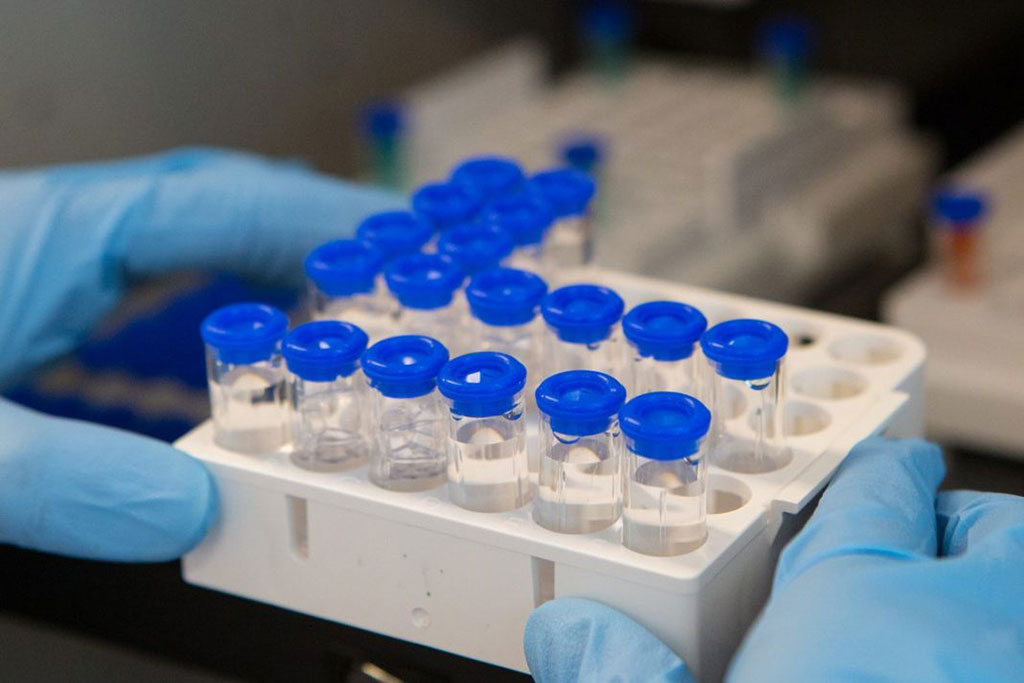Pfizer and BioNTech this morning received the FDA’s first formal approval for a COVID-19 vaccine—the messenger RNA (mRNA)-based BNT162b2, which according to the agency will be marketed going forward as Comirnaty, its brand name in Europe.
Comirnaty will be indicated for the prevention of COVID-19 disease in individuals 16 years of age and older. The vaccine will also continue to be available under emergency use authorization (EUA), for adolescents ages 12–15 years of age, as well as for the administration of a third “booster” dose in specified immunocompromised individuals.
“The FDA’s approval of this vaccine is a milestone as we continue to battle the COVID-19 pandemic,” acting FDA Commissioner Janet Woodcock, MD, declared in a statement. “While millions of people have already safely received COVID-19 vaccines, we recognize that for some, the FDA approval of a vaccine may now instill additional confidence to get vaccinated. Today’s milestone puts us one step closer to altering the course of this pandemic in the U.S.”
“As the first FDA-approved COVID-19 vaccine, the public can be very confident that this vaccine meets the high standards for safety, effectiveness, and manufacturing quality the FDA requires of an approved product,” Woodcock insisted.
The vaccine’s EUA status, rather than full approval, has been cited as among reasons for vaccine hesitancy: A June survey by the Kaiser Family Foundation found 3 in 10 unvaccinated adults—and about half of those who said they’d “wait and see” before committing to be vaccinated—responded that they would be more likely to get vaccinated if one of the vaccines currently authorized for emergency use were to receive full FDA approval.
“I am hopeful this approval will help increase confidence in our vaccine, as vaccination remains the best tool we have to help protect lives and achieve herd immunity,” stated Pfizer’s Chairman and CEO Albert Bourla, DVM, PhD.
Added Peter Marks, MD, PhD, director of FDA’s Center for Biologics Evaluation and Research: “We have not lost sight that the COVID-19 public health crisis continues in the United States and that the public is counting on safe and effective vaccines. The public and medical community can be confident that although we approved this vaccine expeditiously, it was fully in keeping with our existing high standards for vaccines in the U.S.”
Comirnaty is a nucleoside modified mRNA (modRNA) candidate encoding an optimized SARS-CoV-2 full-length spike protein antigen.
Pressure to act
The FDA granted EUA to the Pfizer/BioNTech vaccine in December 2020, following months of intense pressure from then-President Donald Trump on the agency and then-Commissioner Stephen M. Hahn, MD, to act quickly on the companies’ EUA application—pressure that Trump intensified by publicly faulting what he contended was the agency’s overly slow response to the application submitted a month earlier.
Pfizer and BioNTech submitted a Biologics License application for formal FDA approval in May, for people ages 16 and older.
Since then, 204,750,908 doses of the vaccine have been administered as of yesterday, while 73% of U.S. adults have received at least one dose of a COVID-19 vaccine, and 62% of adults are fully vaccinated, according to the U.S. Centers for Disease Control and Prevention’s COVID Data Tracker.
“Our companies have shipped more than one billion doses worldwide, and we will continue to work tirelessly to broaden the access to our vaccine and to be prepared for potential emerging escape variants,” said Ugur Sahin, MD, CEO and Co-founder of BioNTech.
The initial EUA was based on positive Phase III data showing the vaccine to have a 95% efficacy rate—though that was against the original strain of SARS-CoV-2, not any of the numerous variants that have emerged since then. Pfizer said last month it is preparing an updated version of the vaccine based on the delta variant, with clinical studies set to start as soon as this month.
A report released July 23 by Israel’s Ministry of Health found the Pfizer/BioNTech COVID-19 vaccine to be 39% effective in preventing infections of the Delta variant of SARS-CoV-2 between June 20 and July 17—well below the 64% effectiveness reported between June 6 and July 3, and 94.3% between May 2 and June 5. However, the vaccine was found to be 88% effective in preventing hospitalizations and 91% effective in preventing severe Delta infection.
Five days later, Pfizer researchers posted a preprint study on medRxiv showing the efficacy of BNT162b2 at a robust 96.2% between one week and just under two months after receiving the second dose—then declining to 90.1% between 2 months and just under 4 months, and to 83.7% from 4 to 6 months. Of 31 cases of severe, FDA-defined COVID-19 with onset after dose 1, all but one case occurred in placebo recipients, corresponding to 96.7% vaccine efficacy against severe COVID-19.
The data came from the global Phase III trial (NCT04368728) assessing the vaccine. The ongoing, placebo-controlled, observer-blinded, multinational, pivotal efficacy study enrolled 44,165 ≥16-year-old participants and 2,264 12–15-year-old participants who were randomized to receive 2 doses, 21 days apart, of 30 µg BNT162b2 or placebo.
“Based on the longer-term follow-up data that we submitted, today’s decision by the FDA affirms the efficacy and safety profile of our vaccine at a time when it is urgently needed,” Bourla added.
On May 10, the FDA expanded the vaccine EUA to include adolescents ages 12–15. The agency based its decision on favorable safety and efficacy data from 2,260 participants ages 12–15 years old enrolled in an ongoing randomized, placebo-controlled clinical trial in the United States, all of whom showed no evidence of prior infection with SARS-CoV-2.
Comirnaty is among more than 20 “Front Runner” candidates among the more than 300 COVID-19 therapeutics under study in GEN’s “COVID-19 Drug & Vaccine Candidate Tracker.”



